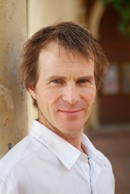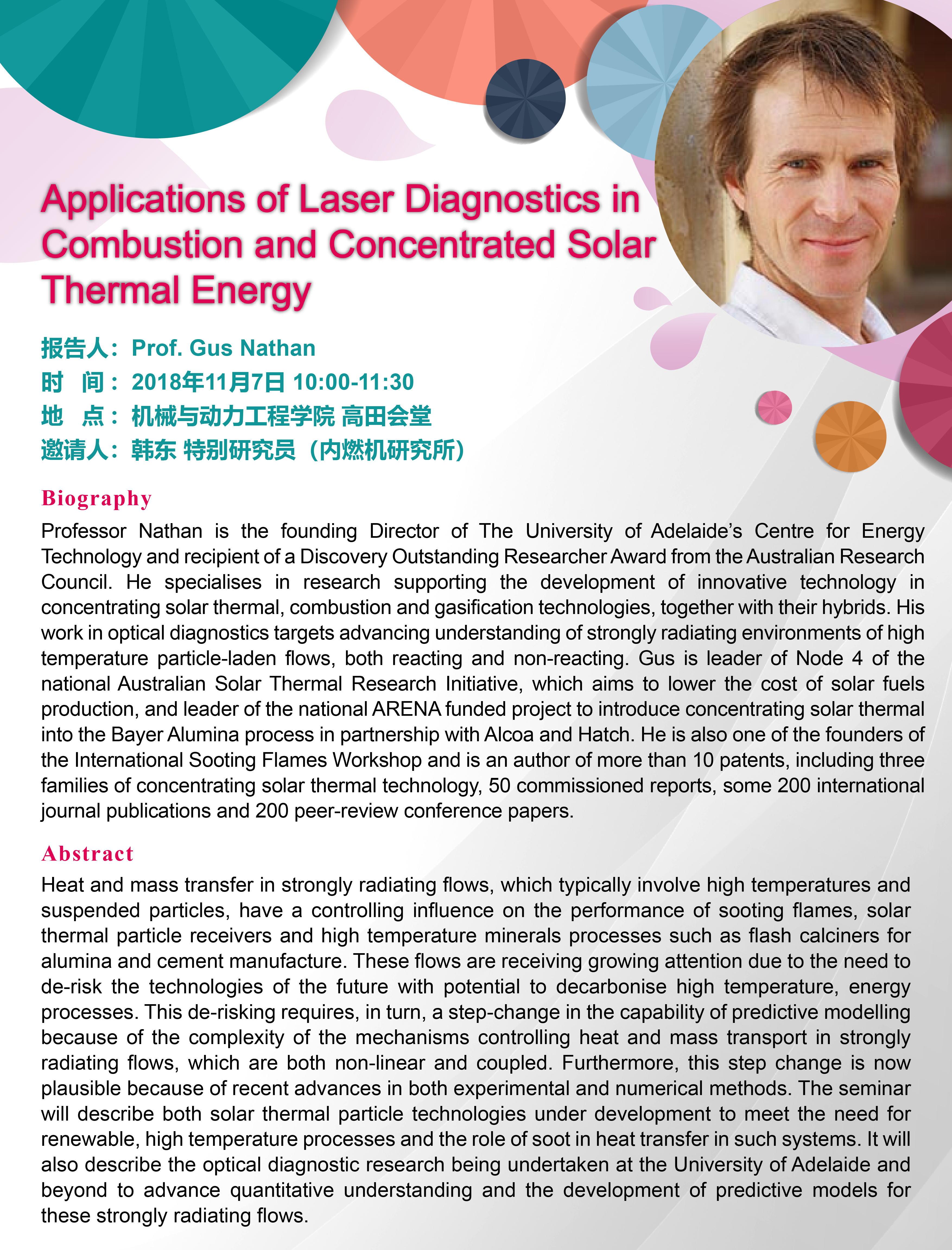
Events

Events
Title:Applications of laser diagnostics in combustion and concentrated solar thermal energy
Place:10:00-11:30, Nov.7, 2018
Place:F100,TAKATA Conference Hall,School of Mechanical Engineering
Host:HAN Dong, Associate Professor(Institute of Internal Combustion Engine)
Biography:
 Professor Nathan is the founding Director of The University of Adelaide’s Centre for Energy Technology and recipient of a Discovery Outstanding Researcher Award from the Australian Research Council. He specialises in research supporting the development of innovative technology in concentrating solar thermal, combustion and gasification technologies, together with their hybrids. His work in optical diagnostics targets advancing understanding of strongly radiating environments of high temperature particle-laden flows, both reacting and non-reacting. Gus is leader of Node 4 of the national Australian Solar Thermal Research Initiative, which aims to lower the cost of solar fuels production, and leader of the national ARENA funded project to introduce concentrating solar thermal into the Bayer Alumina process in partnership with Alcoa and Hatch. He is also one of the founders of the International Sooting Flames Workshop and is an author of more than 10 patents, including three families of concentrating solar thermal technology, 50 commissioned reports, some 200 international journal publications and 200 peer-review conference papers.
Professor Nathan is the founding Director of The University of Adelaide’s Centre for Energy Technology and recipient of a Discovery Outstanding Researcher Award from the Australian Research Council. He specialises in research supporting the development of innovative technology in concentrating solar thermal, combustion and gasification technologies, together with their hybrids. His work in optical diagnostics targets advancing understanding of strongly radiating environments of high temperature particle-laden flows, both reacting and non-reacting. Gus is leader of Node 4 of the national Australian Solar Thermal Research Initiative, which aims to lower the cost of solar fuels production, and leader of the national ARENA funded project to introduce concentrating solar thermal into the Bayer Alumina process in partnership with Alcoa and Hatch. He is also one of the founders of the International Sooting Flames Workshop and is an author of more than 10 patents, including three families of concentrating solar thermal technology, 50 commissioned reports, some 200 international journal publications and 200 peer-review conference papers.
Abstract:
Heat and mass transfer in strongly radiating flows, which typically involve high temperatures and suspended particles, have a controlling influence on the performance of sooting flames, solar thermal particle receivers and high temperature minerals processes such as flash calciners for alumina and cement manufacture. These flows are receiving growing attention due to the need to de-risk the technologies of the future with potential to decarbonise high temperature, energy processes. This de-risking requires, in turn, a step-change in the capability of predictive modelling because of the complexity of the mechanisms controlling heat and mass transport in strongly radiating flows, which are both non-linear and coupled. Furthermore, this step change is now plausible because of recent advances in both experimental and numerical methods. The seminar will describe both solar thermal particle technologies under development to meet the need for renewable, high temperature processes and the role of soot in heat transfer in such systems. It will also describe the optical diagnostic research being undertaken at the University of Adelaide and beyond to advance quantitative understanding and the development of predictive models for these strongly radiating flows.


Shanghai Jiao Tong University
Address: 800 Dongchuan Road, Shanghai
200240